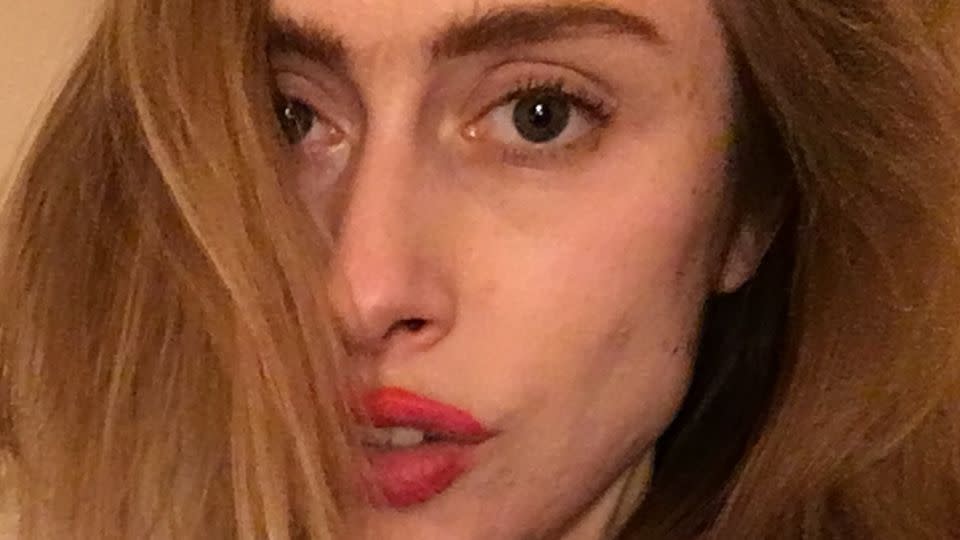Opinion: This word of the year has a big problem
Editor’s Note: Holly Thomas is a writer and editor based in London. She is morning editor at Katie Couric Media. She tweets @HolstaT. The opinions expressed in this commentary are solely those of the author. View more opinion on CNN.
If your year so far has been defined by confusion and ambiguity, prepare to feel seen.
According to Merriam-Webster, the word of 2023 is “authentic.” And unlike the dictionary’s last few choices, it’s plagued by contradictions.

“Pandemic” was the word of 2020, followed by “vaccine” in 2021, and the fractionally more esoteric, but still pervasive, “gaslighting” in 2022. There’s no double-entendre in that lineup; all are obviously apt. “Authentic,” on the other hand, is thornier. It wasn’t chosen because authenticity is particularly abundant at the moment. It was chosen because it’s particularly fraught.
The dictionary publisher’s editor-at-large Peter Sokolowski told The Associated Press that 2023 represented “a kind of crisis of authenticity,” evinced by the number of users who looked up its meaning throughout the year. Indeed, all manner of pressing concerns spring to mind. Generative artificial intelligence, the spread of fake news, and Rep. George Santos’ CV are all worth losing sleep over. But I think the roots of our struggle with authenticity are both deeper and shallower than the above list implies. On an individual level, we’ve fretted about authenticity for years.
Personal authenticity should be easy to sum up in a sentence, but it’s remarkably hard. Other popular 2023 search terms like “deadname” and “deepfake” convey a similar concern with identity, but have more binary negative connotations. What’s unique about authenticity is that while it’s theoretically aspirational —Merriam-Webster says it means “real,” or “true to one’s own personality, spirit, or character” — it’s become loaded by association. Authenticity may be hard to define, but we’re hypersensitive to signs it’s being faked.
Take Jennifer Lawrence. At the beginning of the 2010s, she could do no wrong. The Hunger Games movies were smash hits, but Lawrence’s appeal didn’t piggyback the box office. It hinged on her apparent lack of airs; her authenticity. Yes, she won an Oscar for Silver Linings Playbook in 2013, but she also tripped over her Dior dress as she ascended the stairs to collect her statue and used her speech to wish someone a happy birthday. She refused to diet for roles, cussed liberally, “got drunk and stoned” with her castmates, and told anecdotes about her joke sex toy stash. As Buzzfeed and other outlets made very clear, she was the down-to-earth embodiment of the “cool girl” persona first popularized by Gillian Flynn’s 2012 novel, “Gone Girl,” a riotous, happy-go-lucky sex symbol. Until she wasn’t.
When Lawrence tripped again at the 2014 Oscars, the tide shifted. Stumbling once was cute, but stumbling multiple times seemed calculated. What once appeared authentic now looked manipulative and exhausting to some. Almost overnight, the “cool girl” aura she epitomized was recast. Now, according to social media at least, Lawrence was a “pick me girl.”
“Pick me girls” exhibit similar outward characteristics as cool girls, but as TikTok tells it, their “not like the other girls” vibe is largely pitched with the aim of attracting men. As soon as Lawrence was rebranded as a pick-me girl, noted JL Hodgson earlier this year, her formerly attractive qualities were compromised. The pushback encapsulated a major complication with personal authenticity. Our own diagnosis of our authentic qualities and other people’s interpretations of what we project to the world are both subjective. Even if we can confidently define our “true” selves, there are so many opportunities for miscommunication.
Online, our miniature social media platforms take cues from celebrities’ mega ones. Whether we like it or not, they all bleed into real life. Are the airbrushed Kardashians inauthentic, or are their choreographed photoshoots just an extension of their Botoxed aesthetic IRL? Are filtered selfies inauthentic, or are they more authentic than forced-casual “woke up like this” snaps? Was YouTuber Emma Chamberlain as authentic hosting the Met Gala as she was when she made videos about her meltdowns? Should we even post about our mental health on social media, if we wouldn’t be comfortable telling our boss about it in person?
This is the problem. Even assuming we have sufficient insight to identify our own authentic traits, we can never be entirely sure we’re communicating them effectively to the world, nor that it’s a good idea to do so. The things we feel comfortable sharing online don’t necessarily align with what we’re prepared to say in “real life,” and either way, we can’t control how we’ll be received.
In a sense, authenticity has become tainted by its very desirability. To bring this full circle (and hand off responsibility to the professionals), Webster’s tertiary definition of authenticity is “conforming to an original so as to reproduce essential features.” It’s not a million miles from “fake it ‘til you make it.” Every element of that description offers an opportunity to trip up (sorry Jennifer). What if you’re unable to “conform”? And what if your notion of an “essential” feature differs from the next guy’s?
I’d love to answer the above questions. But having wrestled with authenticity for the better part of an afternoon, the only consistent feature I can identify is that no single person can arbitrate it. You may disagree, of course. But I can only be true to myself.
For more CNN news and newsletters create an account at CNN.com

 Yahoo News
Yahoo News 
